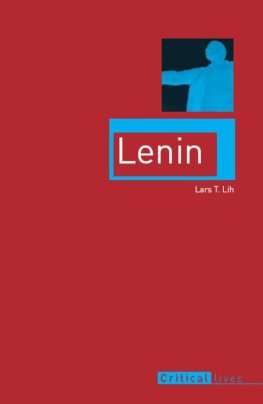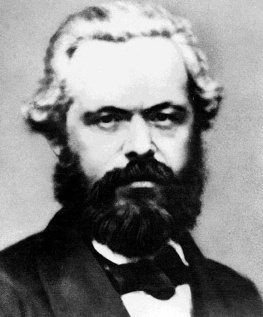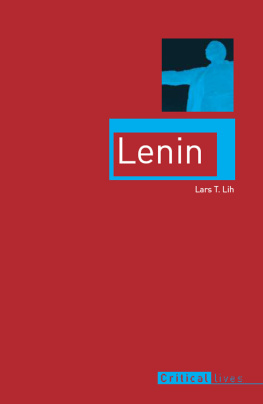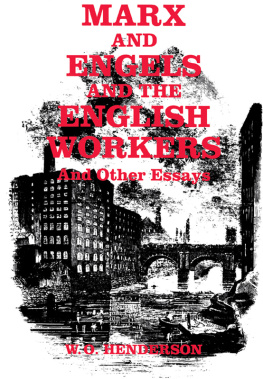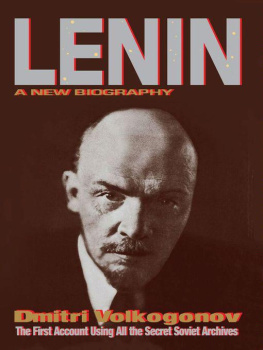Lenin
Biography
Prepared by the Marx-Engels-Lenin Institute
Moscow
Published by Authority of
"Soviet War News"
Issued by the
Press Department of the Soviet Embassy in London
Hutchinson & Co. (Publishers) LTD.
London New York Melbourne
The Fleet Street Press
East Harding St.
E.C.4
I
Vladimir Ilyich Ulyanov (Lenin), the founder of Bolshevism and of the first socialist state in the world was born on April 22 (April 10, Old Style), 1870, in Simbirsk, now called Ulyanovsk, on the Volga.
His father, Ilya Nikolayevich, came from a lower middle class family in Astrakhan. After graduating from high school and the Kazan University he, for fourteen years, taught mathematics and physics in Penza and Nizhni-Novogorod, now called Gorky. Beginning with 1869 he served first as Inspector and later as Director of Elementary Schools in the Simbirsk Gubernia. For his long service he was elevated to the rank of the nobility. Ilya Nikolayevich was a typical representative of the cultured, progressive Russian, who devoted himself entirely to the cause of popular education. Diligent, persevering, and exacting towards himself and others, he placed the interests of his work above all else. He tried to cultivate the same qualities in his children. He died on January 12, 1886.
Lenin's mother, Maria Alexandrovna Blank, was the daughter of a physician. She was a woman of outstanding ability, well educated, highly cultured, had a fine intellect, and was distinguished for her strength of will and firmness of character. She was familiar with Russian and foreign literature, spoke French, German and English, and was very fond of music. She devoted herself entirely to the upbringing of her children, striving to rear them as honest and educated men and women, pursuing high ideals.
The Ulyanovs had six children, three boys: Alexander, Vladimir and Dmitri, and three girls: Anna, Maria and Olga. All of them subsequently became revolutionaries. Alexander, the eldest son, joined the Narodnaya Volya (People's Freedom) Party. The others, except Olga, who died at an early age, became Bolsheviks.
As a child, Lenin was of a lively temperament and already showed promise of talent. At five years of age he was already able to read. On reaching the age of nine, he entered the first form at the Simbirsk High School. Thanks to his exceptional abilities and diligence in his studies he made excellent progress, and passed from form to form with the highest honours. On graduating from High School he had a good knowledge of Latin, Greek, French and German. He was also well up in history and literature, and was particularly fond of books in which the heroes were men of firm and indomitable character.
Lenin spent his childhood and youth on the Volga, in the Simbirsk, Kazan and Samara Gubernias. These were typical peasant gubernias, which afforded him opportunities of observing peasant life: the poverty and ignorance, the inhuman slavery and brutal exploitation that prevailed in the rural districts. He constantly came into contact with working people. He saw that, besides the Russian working people, the numerous, other nationalities, such as the Chuirash, Mordvins, Tatars, and others, were also cruelly oppressed. While still a youth he burned with indignation at the oppression of the toilers and of the subject nationalities.
The period of Lenin's school days and youth was one of the most gloomy in the history of Russia. Subsequently, Lenin referred to these years as the period of "unbridled, incredibly senseless and brutal reaction:"* Tsarism triumphed after crushing the revolutionary movement of the 'seventies. After the assassination of Alexander II by members of the Narodnaya Volya Party in 1881, the autocratic government hastened to nullify even the half-hearted reforms of the 'sixties. The peasants were placed entirely in the power of the Zemsky Nachalniks, who were appointed from among the nobility. Not only the democratic, but almost the entire Liberal press was gagged. Reaction raged even in the schools. The Ministry for Public Education or, as Lenin subsequently called it, "the Ministry for Public Obscuration," tried to train the students to become servile henchmen of the autocracy. Unbridled tyranny of the tsarist government; utter lack of rights and unprecedented oppression of the workers and peasants; monstrous oppression of the subject nationalities, and the cowardice and disgusting servility of the Liberals towards the reactionariessuch was the picture of Russian life a that time.
* Lenin, Selected Works, Eng. ed., Vol. I, p. 439.
At an early age Lenin began to interest himself in the life going on around him and listened attentively to the political conversations of his elders. He read a great deal, and already in his early youth was familiar with the works of the best revolutionary-democratic publicists in Russia. At the age of fourteen or fifteen he read Chernyshevsky's novel, What Is To Be Done?, which made a powerful impression upon him. He also read the works of Dobrolyubov, Pisarev, and other literature which at that time were "taboo." He was very familiar with the democratic poets of the Nekrassov period.
Young Lenin was greatly influenced by his eldest brother, Alexander. The two were great chums. Alexander was a serious, thoughtful lad, very self-disciplined, and imbued with a high sense of duty. He studied physics and mathematics at the St. Petersburg University and spent his summer vacations at home. During the vacations of 1885 and 1886 he brought home with him a copy of Marx's Capital, which Lenin began to read.
Lenin's opposition to the entire social and political system prevailing in tsarist Russia began to crystallize quite early in life. When still a student in the upper form of the High School, he was already revolutionary minded, and this was even reflected in his school work. For example, one day the Head Master of the school returned to Lenin an essay he had written and said to him in a tone of displeasure: "Who are these oppressed classes you write about here? Why do you write such stuff?"
The year 1887 marked the turning point in Lenin's life. In that year he irrevocably took the path of revolution.
At the beginning of that year great sorrow befell the Ulyanov family. On March I, Alexander Ulyanov, Lenin's eldest brother, was arrested in St. Petersburg for complicity in the plot against the life of Alexander III.
Anna, Lenin's eldest sister, who was also a student in St. Petersburg, was arrested at the same time.
V. V. Kashkadamova, an intimate friend of the Ulyanov family, relates that on receiving the news of Alexander's arrest in St. Petersburg, she went to Simbirsk to see Lenin at the High School he attendedhe was then in the eight and last formto consult with him as to how to prepare Maria Alexandrovna, Lenin's mother, for the sad news. She showed him the letter she had received from St. Petersburg. After reading it Lenin remained silent for a long time, his brows drawn tight in a deep frown. "It was no longer a carefree and boisterous youth that sat before me," she writes in her reminiscences, "but a grown-up man, pondering deeply over a grave question."
"That is a serious business," he said. "It may end badly for Sasha."
All the efforts of Maria Alexandrovna to save the life of her eldest son proved fruitless. He was executed in the Schlsselburg Fortress on May 8, 1887.
As soon as the news of Alexander Ulyanov's arrest reached Simbirsk, Liberal "society" in that town began to shun the Ulyanov family. Even close acquaintances ceased to visit them. This evidence of widespread cowardice made a deep impression upon young Lenin; it taught him what the high-flown chatter of the Liberals was really worth.


